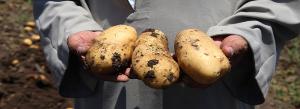
| History Of The World Agricultural Forum The World Agricultural Forum (WAF) is a noted policy-neutral and internationally inclusive agriculture-driven forum. History of the Organization The WAF was founded in 1997 by a small group of agri-food and financial leaders in St. Louis, Missouri. Prior to the formation of the World Agricultural Forum (WAF) in 1997, no neutral forum existed for comprehensive discussion and examination of global agricultural/agri-food policy or development of creative solutions to address the concern in supplying food, fiber and fuel to a population growing in numbers and wealth. Recognizing the benefits such a neutral forum would provide, the WAF was founded with a clear sense of purpose. Participating Countries The WAF has attracted participation from 110 countries to World Congresses since 1998. Governments, NGOs, private and public businesses and universities have represented countries in Africa, Europe, the Americas, Micronesia, the Pacific Rim, Asia, Oceania and the Indian subcontinent. The Advisory Board to the WAF consists of representatives having agriculture backgrounds in 16 countries including New Zealand, China, India, Morocco, Columbia, the United States, Italy, Costa Rica, Argentina, Brazil, Belgium, Switzerland, Malaysia, Indonesia, Germany and France. Organizations Represented Few other organizations attract opposing views of global agriculture on an equal platform for the discussion and creation of change. Influential speakers and participants throughout the past World Congresses have shared their agendas and perspectives among their peers. This remarkable list includes heads of state, policy makers, corporate leaders, academia, economists and media from all aspects of the agriculture value chain. In ten years, the WAF has convened many ministers and secretaries of agriculture from around the world and several have participated in more than one Congress. Other repeat participants or speakers include Dr. Norman Borlaug, the World Bank, W.K. Kellogg Foundation, Monsanto, Tyson, D1 Oils, Nestle, Corporate Council on Africa, International Food and Policy Research Institute, The World Food Prize, Partnership to End Hunger in Africa, United Nations, Food and Agriculture Organization, European Union, U.S. Congress, U.S. Senate, U.S. Secretaries of Agriculture, OXFAM America, World Wildlife Fund, World Trade Organization, Earth University in Costa Rica, Michigan State University and Washington University. Discussions The WAF has been at the forefront of identifying pressing issues in agriculture, bringing controversial topics to the table such as food security, the ever-growing food vs. fuel debate, food safety, agricultural sustainability, investments in agribusiness, natural resource management, impact of free trade agreements, technology and biotechnology acceptance, increasing demands and decreasing availability of fresh water, examples and advancements in bioenergy, agriculture mitigating climate change, and linking small-holder farmers to effective and equitable markets. Achievements Throughout the last decade, the WAF has seen successes in the following areas: raised awareness of biofuels, particularly the introduction of Jatropha; named Asia-Pacific Economic Cooperative (APEC) Domestic Champion - as the Domestic Champion for APEC, the WAF provides a means for the Finance and Agriculture Ministers for the 21 member economies to further their food system agenda; consistently brings together leading global partners and competitors in the agriculture value chain to create new ideas and approaches for change; formed partnerships with the United Nation's International Fund for Agricultural Development, the World Food Program and the Food and Agricultural Organization to examine the need for a Global Commission on Rural Development; creation of Non-Government Organization Council; created a community on water as it is integrated with agriculture; created a demonstration engine using Jatropha for education and science; heightened the exposure of their Board in both the industry and media. The World Agricultural Forum is classified as a 501(c)(3) organization. |
| About us Events Media |
Organisation
Members
History
FAQs
Members
History
FAQs
| The World Agricultural Forum is a not-for-profit public benefit corporation established for charitable,educational and scientific purposes under Section 501 (c) (3) of the United States Internal Revenue Code. |
| Vision and Mission: The Vision of the WAF is to empower agriculture to feed every man, woman and child. The Mission of the WAF is to catalyse the development of action plans that meet the world's growing need for food, fiber, fuel and water. |


Upcoming
Past Congresses
Past Congresses
| Home Newsletter Contact us December 2012 September 2012 April 2012 |